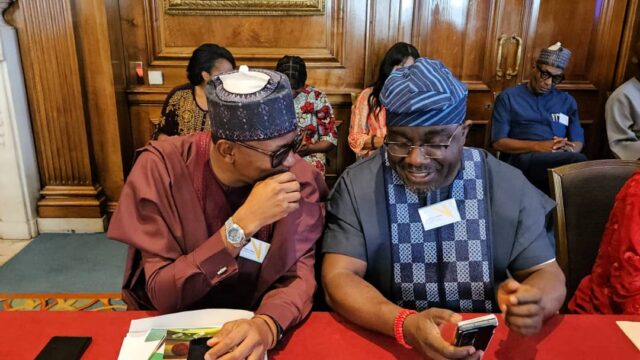The centenary of the Commonwealth Games is approaching, and at the heart of the conversation is Nigeria’s Commonwealth Games bid, a campaign pulsing with ambition, symbolism, and the promise of lasting impact. From the government’s guarantees to athlete voices that speak to hope and inclusion, Nigeria is making its case not only to host the 2030 Games, but to redefine what the event can mean for a continent that has never staged it.
Historic first within reach
Since the inaugural edition in 1930, no African nation has hosted the Commonwealth Games, a gap that feels especially stark as the event turns 100. Durban in South Africa once held the rights for 2022, yet lost them in 2017 after failing to meet financial guarantees and other obligations, a reminder of how exacting the standards are, and how meaningful a successful bid would be for the continent.
Backing Nigeria in 2030 would be both symbolic and corrective, a statement that every region matters in the Commonwealth story. The centenary presents a rare alignment of history and opportunity, and supporters of the bid believe the stage is set for Africa to step forward with confidence and clarity on the world’s sporting calendar.
Government commitment and reform
Momentum begins with political will, and Nigeria’s pitch leans into that with a letter of guarantee that underscores full government backing. President Bola Tinubu’s administration has moved to strengthen oversight by replacing the Ministry of Sports with a National Sports Commission, an institutional shift aimed at better delivery for major events and long-term sports development.
Bid officials stress readiness across core pillars, from infrastructure and security to hospitality and operations. The message is deliberate and direct, facilities will be prepared well ahead of schedule, and organizational structures are being tuned to meet the expectations that come with a multi-sport gathering of global significance.
Legacy that reaches beyond medal tables
Hosting is never only about a fortnight of competition, it is about the ripple effects that follow. The Games would catalyze investment in new venues, upgrades to existing sites, and a lift for tourism and hospitality, with benefits set to flow to construction, services, and local SMEs. Nigeria can point to its experience with large events through the African Games in Abuja in 2003, a precedent that still resonates.
There is also the social dimension, a unifying national moment that showcases Nigeria’s diversity in a peaceful, inclusive setting. For the country’s youth, the signal would be clear, achievement in sport is valued, celebrated, and supported, a message that often changes lives long after the final medal is awarded.
Athlete voices drive the bid
Few perspectives land with as much authenticity as those of the athletes themselves, and para-badminton star Eniola Bolaji has become a powerful advocate. Ranked world number three, she traveled to London as part of the Nigerian delegation as officials presented their final pitch to the Commonwealth Sport Association, a sign of how central athlete stories are to the narrative.
“If Nigeria wins the hosting rights, it will change the story for para-badminton and many other para-sports. It will give young players hope and show them that they can achieve anything.”
Bolaji has already represented Nigeria at the Commonwealth Games and speaks of the transformative power of competing at home. For athletes with disabilities in particular, she sees hosting as a turning point, one that could bring better facilities, more recognition, and sustained investment at the grassroots where dreams begin and confidence grows.
“It’s an opportunity to showcase our talent to the world. The passion is there, the talent is there, and I believe Nigeria has the capacity to deliver a fantastic event.”
Football as a bold differentiator
Nigeria’s bid introduces a striking idea that could set the 2030 Games apart, football on the program for the first time in Commonwealth Games history. National Sports Commission chairman Mallam Shehu Dikko describes the inclusion of football as a unique selling point, one designed to widen appeal and engage fans across the country.
There are hurdles to clear. Football has never featured at the Games, in part due to the crowded global calendar and FIFA’s efforts to avoid any parallel championship. Nigeria would need to propose an age category and competition window that do not clash with FIFA tournaments, including the Women’s World Cup, or the seasons of major European leagues, a puzzle that requires precision and collaboration.
“We want to use sports to provide a foundation that will open up the country globally. That’s why we are not just bidding to host the Commonwealth Games, we are also in the race to host the 2031 Africa Games.”
“Once we invest and host the Commonwealth Games in 2030, the following year, in 2031, the same infrastructure will be used to do the other one on a larger scale.”
Dikko outlines a broader pathway, one that connects the Commonwealth Games to sustained development. Nigeria has secured the rights to the 2027 Africa Youth Games, a valuable test run for venues and logistics, and the intention is to stage events across multiple locations, not just Abuja, but also Lagos and other cities, spreading opportunities and elevating facilities nationwide.
“We will arrange for the football matches to be played all across the country, which would help other states to improve their facilities as well.”
A bid that aligns with Commonwealth priorities
Selection criteria in recent cycles have placed emphasis on sustainability, legacy, and diversity, themes that echo through Nigeria’s proposals. Bid documents highlight reforms, environmental stewardship, inclusion, and a platform to showcase local culture and talent, while also pointing to hospitality readiness as a competitive advantage that can shape the athlete and fan experience.
Competition for 2030 includes India, which hosted in 2010, a factor that underscores Nigeria’s argument for novelty and geographic balance. For those championing the bid, the centenary is the right moment to affirm that Africa has an equal place in the collective narrative, one that has been built by generations of athletes and fans from every corner of the Commonwealth.
What success would mean for Nigeria and the Commonwealth
The symbolism is unmistakable. Awarding the 2030 Games to Nigeria would acknowledge a century of participation that has yet to see Africa take center stage, a choice that signals commonness, equality, and belonging in practice. It would give the next generation a stage at home, and a reason to believe that sport can be a lever for change in communities from Lagos to Kano, from Port Harcourt to Abuja.
Supporters see an economic and social catalyst, a chance to accelerate projects, create jobs, and strengthen the nation’s connective tissue in ways that sport is uniquely positioned to do. The narrative is not only about medals or records, it is about identity, confidence, and the shared pride that lingers long after the flame is extinguished.
How the pieces fit together
Nigeria’s pitch is not a single initiative but a network of commitments that reinforce each other. The letter of guarantee speaks to political resolve, the National Sports Commission signals governance focus, and the 2027 Africa Youth Games offer a proving ground where systems can be tested and refined ahead of 2030.
Add to that the breadth of the proposed footprint, with events beyond Abuja, and a bold plan for football that, if approved, could bring fans into the fold in unprecedented ways. The delegation that delivered the bid in London included figures from diplomacy, government, entertainment, and sport, among them Mary Onyali, a reflection of how widely the effort is supported across Nigerian public life.
Three reasons this bid resonates
- a centenary platform that can produce the first African host,
- clear government backing paired with governance reform,
- athlete-driven purpose that prioritizes inclusion and legacy.
Voices that frame the future
As the decision draws nearer, Eniola Bolaji’s words linger, a reminder that the Games are ultimately about people. She speaks of hope for young para-athletes, of the power of visibility and representation, and of the pride of performing in front of home fans. In her view, the benefits reach far beyond a single event, and that sense of continuity is precisely what legacy is meant to deliver.
“Hosting the Commonwealth Games will leave a legacy, better facilities, more recognition for athletes, and inspiration for the next generation.”
For Shehu Dikko, the vision is expansive, one that uses sport to open doors and position Nigeria as a dynamic host on the global stage. The plan is to build once and benefit twice, aligning the 2030 Commonwealth Games with the 2031 Africa Games so that investment serves a wider horizon and a broader community of athletes and fans.
The heart of the matter
At stake is more than the right to organize a tournament. It is the chance to correct a historical omission, to uplift communities through infrastructure and opportunity, and to say to the world that Africa’s time, in this context, has arrived. The bid is buoyed by athlete advocacy, structural reform, and a willingness to innovate with ideas like football on the program, all of which give it texture and credibility.
Whether judged by symbolism or substance, the outline is compelling. If the Commonwealth is to live up to its values of mutual respect and shared progress, then staging its centenary in Nigeria would be a powerful and lasting expression of those ideals, a celebration of what the Games can be when they embrace every part of the family.
What to watch next
Nigeria’s delegation has made its case in London at the Commonwealth of Nations headquarters, with support from athletes, administrators, and cultural figures. The bid emphasizes readiness and reach, and the country remains optimistic that its passion and potential will be recognized by the Commonwealth Sport Association and related bodies that steward the movement.
The outcome will determine whether the centenary edition becomes a milestone for Africa as well, and whether a new generation of athletes, including those in para-sports, will find their path illuminated by the promise of a home Games. For many in Nigeria, that possibility is already inspiring work, belief, and a shared sense of purpose.






